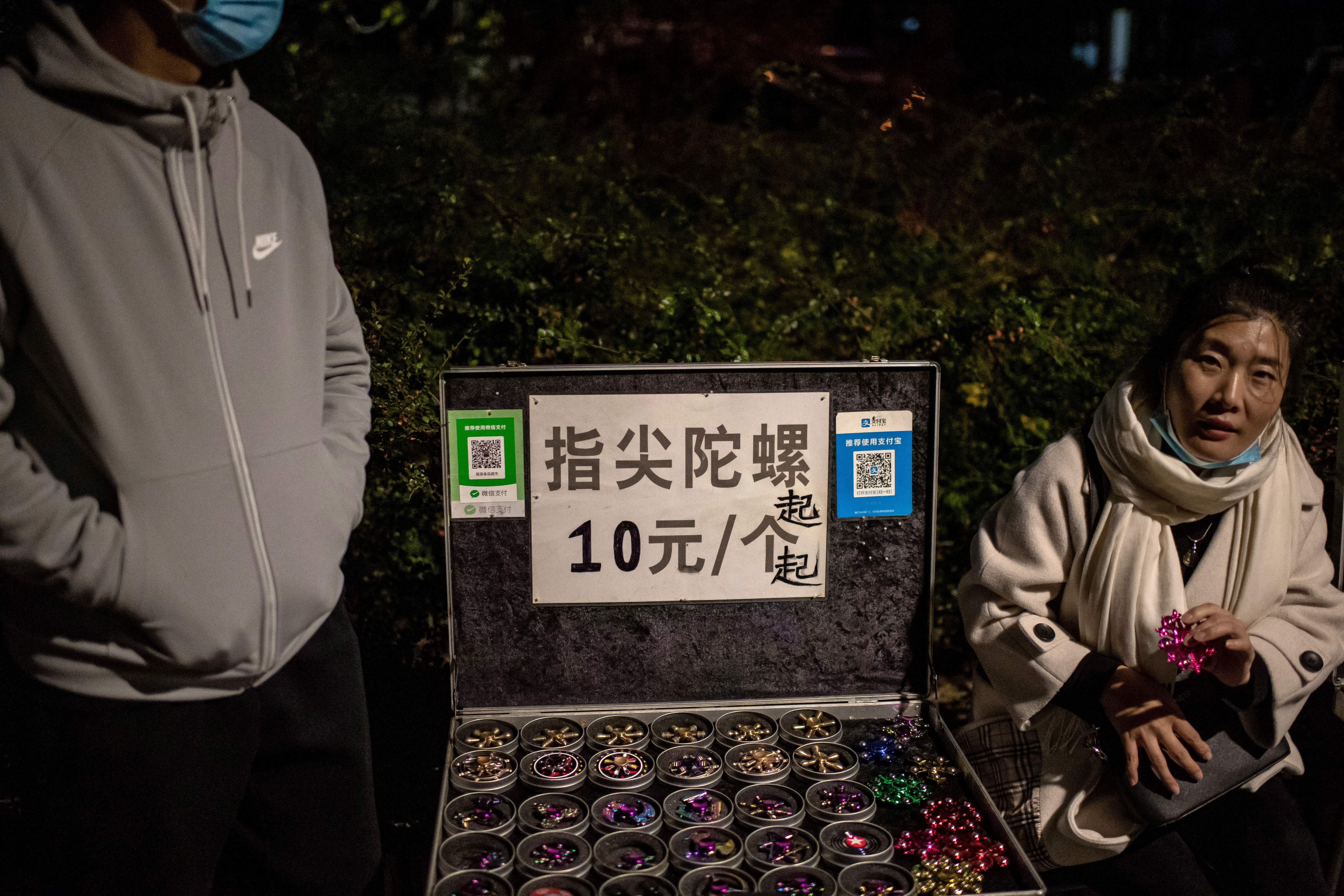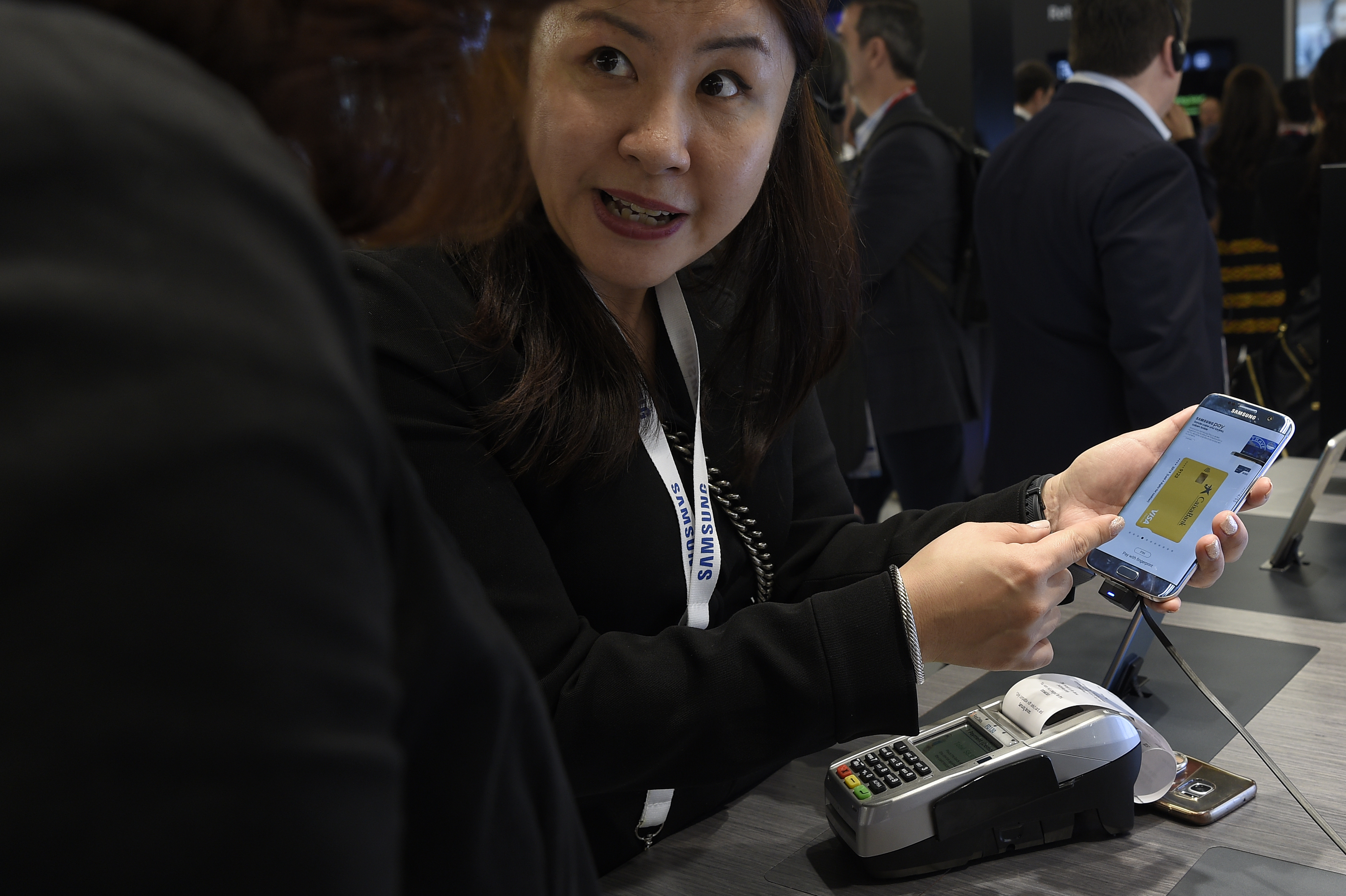What It’s Like To Live in a Cashless Society
Over a decade ago, Alipay launched in China, promising easy online transactions for all. A few years later, Chinese super app WeChat introduced a similar mobile payment service called WeChat Pay to its millions of users. Today, the two platforms are ubiquitous on smartphones all over the country, driving a mobile-driven revolution that has made China one of the most cashless societies in the world. Those living there say they've survived for years without a wallet.
China is home to about 1.4 billion people, and hundreds of millions of them rely on smartphones to pay for anything and everything. Most businesses have a QR code, which customers can scan with payment apps to make a purchase. This has become so widespread that the government has had to crack down on merchants who refuse cash payments from customers, stressing that the Chinese yuan is still the statutory currency and legal tender of China.
Shanghai-based Toby Graham, 40, works for an international accounting firm and to him, it's impossible to imagine going back to cash. I couldn't give you a date for when I last used cash here in China, but it's definitely been years," Graham told VICE World News. He has been living in China for eight years and has watched the nationwide takeover of WeChat and Alipay. By 2017, he had stopped using ATMs.
In the last four months, because of work, I have traveled to seven major cities in China and all I took with me was a passport, some clothes, and my phone," Graham shared. At no point did I need to take cash out. I don't even have a wallet."
Graham explained that while he also has his credit card on him, he only uses it in the event that he loses his phone.
The phone is how you do everything. I use it to pay for utility and bills, to pay rent to my landlord, to shop online, to buy groceries at the supermarket. ...I can't think of one thing you can't do with your phone here," he said.
The use of mobile payment apps has even penetrated remote villages. According to Chinese market research firm Daxue Consulting, nearly half of the country's rural population reportedly uses mobile payment services regularly. In 2017, transactions through non-banking mobile payment services in rural areas totaled 42.9 trillion Chinese yuan ($6.64 trillion).
I've seen really small businesses - I'm talking about those small fruit shops you see on the side of the road, or the guy who makes fried noodles and pushes a trolley down the street - and they don't even accept cash anymore," Graham said. I see beggars all the time and they'll carry a QR code with them which you can scan to give them money."
 An Alipay QR payment code (R-in blue) and a WeChat QR code (L-in green) displayed at a street stall selling gadgets in Beijing for customers to scan to pay for items. Photo: NICOLAS ASFOURI, AFP
An Alipay QR payment code (R-in blue) and a WeChat QR code (L-in green) displayed at a street stall selling gadgets in Beijing for customers to scan to pay for items. Photo: NICOLAS ASFOURI, AFP A continent away, in Sweden, it's a similar situation. The Nordic country is predicted to be completely cashless by 2023, running solely on digital and card payments. Many local businesses like bars and restaurants, even banks, have already stopped handling cash. According to Sweden's central bank, the proportion of Swedes using cash between 2010 and 2020 fell from 40 percent to less than 10 percent.
Valter Primus, 20, now thinks it's weird to see people use cash. I don't really see anyone doing so. I mostly see it in movies now," he said.
The university student told VICE World News that the last time he paid for something with cash was when he was 13, shortly before he got his first debit card.
I don't remember what it was for, exactly. Probably a sandwich at school or something," Primus shared. After that, I started using Swish. It's an app that lets you transfer money from your account to someone else's using their phone number."
Swish was launched in 2012 by six of Sweden's biggest banks, and has since amassed over 7 million users nationwide, more than two thirds of the country's population. With Swish, Primus no longer keeps cash on him or at home, which he says is the norm.
I can't imagine going back to cash, honestly. It seems like quite a hassle and very 19th century," Primus said. Even my great-grandparents have managed to make it [Swish] work and don't use cash anymore."
I can't imagine going back to cash, honestly. It seems like quite a hassle and very 19th century."
Back in Asia, South Korea is catching up to China when it comes to cashless payments. It's one of the most wired countries in the world and in 2018, cash accounted for only 20 percent of all its payments, with a rise in people carrying little or no cash at all.
 A person shows the "Samsung Pay" system on the first day of the Mobile World Congress in Barcelona. Photo: LLUIS GENE, AFP
A person shows the "Samsung Pay" system on the first day of the Mobile World Congress in Barcelona. Photo: LLUIS GENE, AFP A 20-year-old South Korean college student who wishes to be identified as J told VICE World News that she only used cash last month to buy a morning after pill off the record. But for everything else she buys in her daily life, she uses her phone.
I think for the younger generation - by this, I mean those under 65 - [they] definitely lean toward digital payments," J said. If not credit or debit cards, people use apps to transfer cash like KakaoPay, Samsung Pay, and ZeroPay."
In city-state Singapore and neighboring country Malaysia, people have also been turning to mobile payments more and more, but many still resort to cash at small or rural establishments that are not equipped with digital payment systems.
Cash is for places where I know they won't take payWave, which is a contactless payment method. So, places like the wet markets or hawker centers," Nica Rollan, 28, a Filipino expat working in Singapore told VICE World News.
Hesper Buckland, 19, said the situation is similar in Malaysia. I usually have a bit of cash in hand every day because [in Malaysia], we have some hawker stalls or local food places owned by the old folks that only take cash. But for everything else, I use a payment app on my phone," he said.
Hawker centers are open-air food courts with stalls that sell local delicacies. Up until recently, these stalls typically only took cash payments, but local governments have been working to digitize these businesses.
While Rollan appreciates the convenience of not having to carry coins and bills around with her all the time in Singapore, she said that if she returned to the Philippines, she would likely go back to strictly using cash.
The financial services are so fragmented [in the Philippines], unlike here in Singapore, where everyone uses electronic services like PayNow and PayLah," she said. Going cashless [in the Philippines] will just drive the income gaps [apart]. Digital education and awareness also isn't there, let alone basic education."
While many are optimistic about the idea of a cashless society, there are others, like Rollan, who worry that it leaves some communities behind. San Francisco-based consumer finance expert Erica Sandberg has the same concern.
The move toward an entirely cashless society absolutely leaves the un-banked behind. Not everybody has a credit or debit card, or a smartphone equipped with a mobile wallet," Sandberg told VICE World News.
A physical wallet that you load up with bills and then pay for things as you go along is a powerful process. It's tangible," she added. You can watch your money disappear as you spend, so you are more likely to be careful."
Sandberg also warned that going entirely cashless could impinge on personal freedom and privacy. Being able to make a purchase that is not tracked is important. Cash offers the ability to conduct transactions that marketers and other companies can't monitor," she said.
But privacy concerns don't always lead to users limiting their use of technology, especially during the pandemic, when contactless transactions are preferred. Richard Hartung, managing director of Singapore-based financial consultancy firm Transcart, said that non-cash transactions in Asia have been rising despite privacy issues because most people prioritize convenience.
Digital payments have grown due to the growing number of options available, the lower costs of digital payments, and more recently, because of the pandemic, which has accelerated digitization," Hartung told VICE World News.
He also said that while China is way ahead of the movement in Asia, it's only a matter of time before other countries go cashless.
Other parts of Asia will catch up. Convenient apps help. Government support helps. Innovation helps. But digitization amidst COVID has been the biggest push."